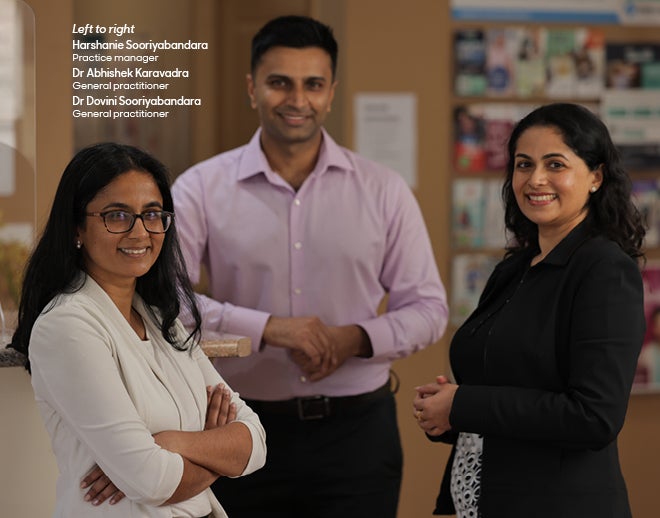Avant for practices
A suite of products and services designed to work holistically across your practice. This includes finance, practice management, insurance, legal services and medical supplies.

We believe at the heart of every successful practice is a team with a strong understanding of running a business. That’s why we developed a suite of expert advisory services and products designed to work holistically across your practice, helping you to run a successful practice so you can focus on what matters most – quality patient care.
Supporting your practice
Whether you already run your own practice, or you’re thinking about starting one, let Avant support you on your journey.

Avant Growth Academy
A series of two-day, in-person workshops delivering insights specifically curated to empower doctors at each career stage to build a practice that aligns with their financial and lifestyle aspirations. Registrations now open for August 2025 in the Melbourne CBD.
Insights and information on growing and running a safe and efficient practice.



